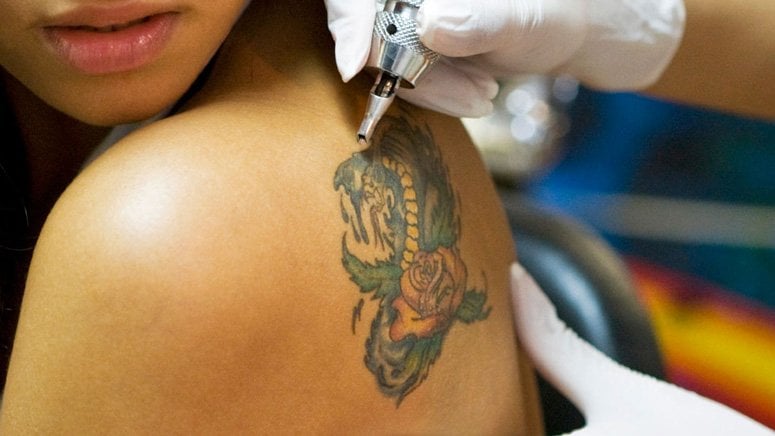Tattoos can potentially cause a series of risks, including skin infections, allergic reactions, and scarring. The risks can increase or worsen if you don’t work with a licensed tattoo artist or if the wound heals improperly.
Aside from these risks, you may also be worried about the potential of cancer from getting new ink. Keep reading to learn what the science says, and how best to guard yourself against common side effects associated with tattooing.
Do Tattoos Lower or Raise the Risk of Developing Cancer?

Despite years of investigation into a potential connection between tattooing and cancer [1], any direct link is currently disregarded as a myth.
There isn’t any conclusive proof that getting a tattoo causes skin cancer, according to a reliable source. Researchers, however, think that there might only be a coincidence between the two.
Can tattoo ink cause cancer?
Skin cancer is unlikely to be brought on by just getting a tattoo, although some tattoo ink chemicals may carry some danger. Variations in pigment and dilution are used to create different hues, and some of them may also contain substances that are potentially carcinogenic [2].
A chemical called azo, which is also used in automobile paints, is found in some tattoo inks. Red ink has also been examined for decades, and prior studies found that rats exposed to red azo pigments had an increased chance of developing liver cancer.
Also thought to pose a greater risk are black inks. According to a 2016 Australian government study, polycyclic aromatic hydrocarbons, which are known to cause cancer, were present in 83 percent of the black inks tested (PAHs).
Other colors could contain potentially dangerous elements like alcohols, barium, cadmium, copper, lead, mercury, minerals, nickel, plastics and vegetable dyes.
Overall, tattoo ink is safer now than it was in earlier times. Asking your tattoo artist about the kinds of inks they use, their components, and their sources is still vital. Notably, the Food and Drug Administration neither regulates nor certifies tattoo inks (FDA).













